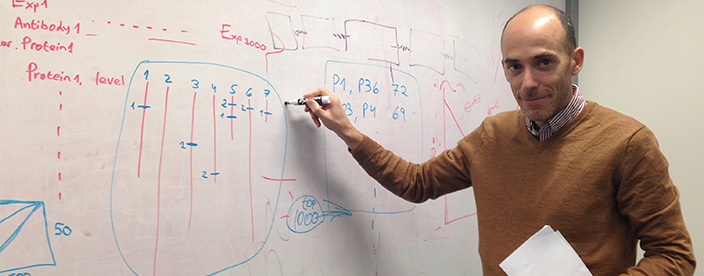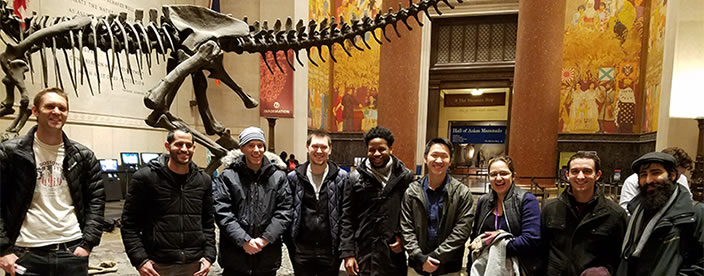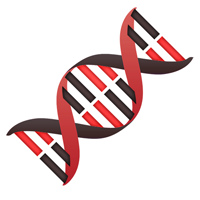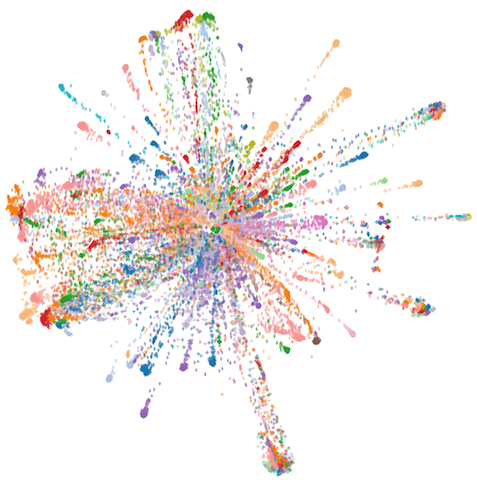Former Ma’ayan Lab PhD students, postdoctoral fellows, bioinformaticians, and computational systems biologists have authored or co-authored publications in leading journals, including Nature, Science, PNAS, Nature Genetics, Nature Medicine, Bioinformatics and Science Signaling. The Ma’ayan Lab alumni have gone to leadership positions in industry and have also been recruited to academic positions. Several of our bioinformatics and computational systems biology research trainees have entered PhD programs at Icahn School of Medicine at Mount Sinai, Princeton, MIT, Columbia, Duke, Cornell, and University of Pennsylvania.
MD/PhD Student

Alexandra Keenan, PhD
Training Period in Lab: 2017-2019
Thesis: Inferring Transcriptional Regulation by Data Integration
PhD Students

Zichen Wang, PhD
Training Period in Lab: 2013-2016
Thesis: Methods for Collecting, Improving and Exploring Mammalian Gene Expression Signatures

Qiaonan Duan, PhD
Training Period in Lab: 2012-2016
Thesis: Harnessing the LINCS L1000 Data for Drug Discovery and Drug Response Analysis

Yan Kou, PhD
Training Period in Lab: 2011-2015
Thesis: Big Data Analytics for Understanding Mechanism of Human Disease
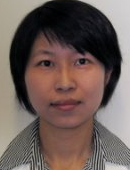
Huilei Xu, PhD
Training Period in Lab: 2009-2012
Thesis: Analysis of Transcriptional Networks in mESCs
Master’s Student

Eryk Kropiwnicki, MS
Training Period in Lab: 2019-2020
Postdoctoral Fellows

Minji Jeon, PhD
Training Period in Lab: 2020-2022

Kathleen Jagodnik, PhD
Training Period in Lab: 2016-2021

Nicolas Fernandez, PhD
Training Period in Lab: 2013-2017

Andrew Rouillard, PhD
Training Period in Lab: 2013-2016
Research Focus: Inferring Cell Signaling Pathways from LINCS

Neil Clark, PhD
Training Period in Lab: 2011-2015
Research Focus: Statistical Methods for Network Analysis in Systems Biology

Ben MacArthur, PhD
Training Period in Lab: 2008-2011
Research Focus: Systems Biology of mESCs

Amin Mazloom, PhD
Training Period in Lab: 2008-2011
Research Focus: Network Analysis of NURSA HT IP-MS Proteomics
Bioinformaticians, Software Engineers, and Database Developers

Juncheng Pan, BS
Training Period in Lab: 2022

Eryk Kropiwnicki, MS
Training Period in Lab: 2020-2022

Megan Wojciechowicz, MS
Training Period in Lab: 2017-2019
Current Position: PhD Student, Icahn School of Medicine at Mount Sinai

Denis Torre, BS
Training Period in Lab: 2016-2019
Current Position: PhD Student, Icahn School of Medicine at Mount Sinai

Shai Magidi, MEng
Training Period in Lab: 2016-2017

Anders Dohlman, BA
Training Period in Lab: 2015-2017

Gregory Gundersen, MA
Training Period in Lab: 2014-2016
Current Position: PhD Student, Princeton University

Michael McDermott, BS
Training Period in Lab: 2014-2016

Matthew Jones, BS
Training Period in Lab: 2014-2015
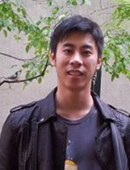
Edward Chen, MS
Training Period in Lab: 2010-2013
Research Focus: Enrichr – Interactive and Collaborative HTML5 Gene List Enrichment Analysis Tool

Ruth Dannenfelser, MSE
Training Period in Lab: 2010-2012
Research Focus: Software Tools for Systems Biology

Simon Gordonov, PhD
Training Period in Lab: 2011-2012
Research Focus: Software Tools for Systems Biology

Christopher Tan, MD
Training Period in Lab: 2011-2012
Research Focus: Software Tools for Systems Biology

Caroline Baroukh, PhD
Training Period in Lab: 2010-2011
Research Focus: Embryonic Stem Cells Atlas of Pluripotency Evidence (ESCAPE) Database
Undergraduate and Post-bac Research Trainees

Clara Chen
Training Period in Lab: Summer 2022
Statistics, Harvard University
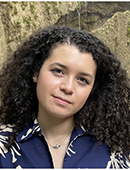
Sophia Colmenares
Training Period in Lab: Summer 2022
Chemical and Biological Engineering, Princeton University

Eden Deng
Training Period in Lab: Summer 2022
Statistics, Computer Science, Duke University

Lauren Druz
Training Period in Lab: Summer 2022
Biology and Society, Cornell University
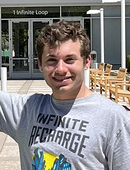
Reid Fleishman
Training Period in Lab: Summer 2022
Computer Science, Cornell University

Sophie Goldman
Training Period in Lab: Summer 2022
Computer Science and Information Science, University of Pennsylvania

Jason Han
Training Period in Lab: Summer 2022
Computer Science, Rice University

Cole Heine
Training Period in Lab: Summer 2022
Biochemistry and Molecular Biology, Brown University

David Lewis
Training Period in Lab: Summer 2022
Computation and Cognition, Massachusetts Institute of Technology

Nhi Nguyen
Training Period in Lab: Summer 2022
Neuroscience, Dartmouth College

Hannah Qu
Training Period in Lab: Summer 2022
Biomedical Engineering, Johns Hopkins University

Derek Wang
Training Period in Lab: Summer 2022
Biological Sciences, Computer Science, Carnegie Mellon University
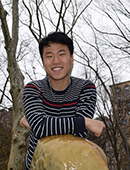
Eric Che
Training Period in Lab: Summer 2021
Computer Science and Pre-Med, Columbia University

Kerwin Chen
Training Period in Lab: Summer 2021
Biometry and Statistics, Cornell University

Sarah Fida
Training Period in Lab: Summer 2021
Computer Science and Biology, Williams College

Sophie Guo
Training Period in Lab: Summer 2021
Biological Engineering and Computer Science, Massachusetts Institute of Technology

Angelina Huang
Training Period in Lab: Summer 2021
Biomedical Engineering and Information Science, Cornell University

Marilyn Meyers
Training Period in Lab: Summer 2021
Electrical Engineering and Computer Science, Massachusetts Institute of Technology

Gabrielle Pile
Training Period in Lab: Summer 2021
Computer Science, Brandeis University

Helen Propson
Training Period in Lab: Summer 2021
Computer Science and Engineering, Massachusetts Institute of Technology

Emily Slobodenyuk
Training Period in Lab: Summer 2021
Biological Sciences and Computer Science, Carnegie Mellon University

Hunter Smith
Training Period in Lab: Summer 2021
Computer Science, University of Chicago
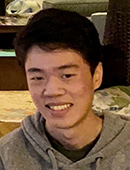
Alexander Tsai
Training Period in Lab: Summer 2021
Molecular Biology, Statistics and Machine Learning, Princeton University

Sophia Vincoff
Training Period in Lab: Summer 2021
Biomedical Engineering and Computer Science, Duke University

Cindy Xiong
Training Period in Lab: Summer 2021
Mathematical Sciences, Carnegie Mellon University

Tahmid Ahamed
Training Period in Lab: Summer 2020
Undergraduate, University of Pennsylvania
Project: Tracing Single Human and Mouse Gene Expression with Age

Samantha Bhuiyan
Training Period in Lab: Summer 2020
Undergraduate, Barnard College, Columbia University
Project: Functional Predictions for Undiagnosed Disease Network (UDN) Genes

Jessie Cheng
Training Period in Lab: Summer 2020
Undergraduate, Carnegie Mellon University
Project: Analysis and Visualization of SARS-CoV-2 Gene Expression Signatures

Charles Dai
Training Period in Lab: Summer 2020
Undergraduate, Cornell University
Project: Appyters to Extract, Transform, and Load (ETL) Data for the Harmonizome

Lucas Goldman
Training Period in Lab: Summer 2020
Undergraduate, Vanderbilt University
Project: L1000KD2: Analysis and Visualization of the LINCS L1000 shRNA Gene Knock-Down Dataset

Jason Hom
Training Period in Lab: Summer 2020
Undergraduate, University of Pennsylvania
Project: Gene Set Comparison Appyter

Julie Karam
Training Period in Lab: Summer 2020
Undergraduate, Brown University
Project: GeneBot and DrugBot – Slack Applications to Discover Knowledge about Genes and Drugs

Skylar Litz
Training Period in Lab: Summer 2020
Undergraduate, Harvey Mudd College
Project: Enrichr Visualization Appyters

Nicole Moiseyev
Training Period in Lab: Summer 2020
Undergraduate, Duke University
Project: An Appyter for the Visualization and Characterization of Cancer Patient Clusters based on RNA-Seq Profiles

Daniel Stein
Training Period in Lab: Summer 2020
Undergraduate, Massachusetts Institute of Technology
Project: Drugmonizome-ML: An Appyter for Predicting Drug Indications

Christine Yoon
Training Period in Lab: Summer 2020
Undergraduate, Duke University
Project: RNA-seq Co-Expression for Functional Prediction of Non-Coding Genes

Serena Zhang
Training Period in Lab: Summer 2020
Undergraduate, University of Pennsylvania
Project: The KINOMEscan and KEA3 Appyters

Zaire Bryant
Training Period in Lab: Summer 2019
Undergraduate, Rutgers University
Project: Global Analysis of Gene Sets and Signatures Associated with Senescence

Elizabeth Jung
Training Period in Lab: Summer 2019
Undergraduate, Cornell University
Project: FAIRification of NIH Common Fund Programs’ Datasets

Alessandra LaRocco
Training Period in Lab: Summer 2019
Undergraduate, Yale University
Project: Predicting Novel Targets and Drugs to Induce Autophagy

Damon Pham
Training Period in Lab: Summer 2017, Fall 2017, Summer 2019
Undergraduate, Indiana University Bloomington
Projects: Gencodr – Gene Set Enrichment Analysis with Deep Learning and Developing Novel Gene Set Enrichment Analysis Algorithms

Samuel Maltz
Training Period in Lab: Summer 2019
Undergraduate, The Cooper Union
Project: Gene Expression Imputations with the Latent Space of RNA-seq Data from ARCHS4

Kaeli Rizzo
Training Period in Lab: Summer 2019
Undergraduate, Georgia Institute of Technology
Project: Predicting the Function and Disease Associations of Under-Studied GPCRs, Ion Channels, and Protein Kinases

Allison Seiden
Training Period in Lab: Summer 2019
Undergraduate, Johns Hopkins University
Project: Analysis of Gene Sets Extracted from a GWAS of the UK Biobank

Ingrid Shu
Training Period in Lab: Summer 2019
Undergraduate, Amherst College
Project: KEA3: Kinase Enrichment Analysis Version 3

David Szanto
Training Period in Lab: Summer 2019
Undergraduate, Harvard University
Project: PALM2A – Mobile and Web App for Predicting Physiological Age from Lab Tests and Vital Signs

Justin Williams
Training Period in Lab: Summer 2019
Undergraduate, Cornell University
Projects: Drug Repurposing Strategies for Alzheimer’s Disease
and PeerShake – A System to Transform the Scientific Review Process

Katherine Chew
Training Period in Lab: Summer 2018
Undergraduate, Massachusetts Institute of Technology
Project: Predicting Gene Signatures for Understudied Small Molecules

Zachary Flamholz
Training Period in Lab: Summer 2018
Undergraduate, Princeton University
Project: modEnrichr: Gene List Enrichment Analysis Tools for Fish, Fly, Worm, and Yeast
Current Position: MD/PhD Student, Albert Einstein College of Medicine

Hannah Freid
Training Period in Lab: Summer 2018
Undergraduate, Princeton University
Project: Integrative Analysis to Suggest Combination Therapies for Ovarian Cancer
Current Position: Medical Student, Icahn School of Medicine at Mount Sinai

Kevin Moses
Training Period in Lab: Summer 2018
Undergraduate, Yale University
Project: JOIN: The Journal of Interactive Notebooks

Vivek Sriram
Training Period in Lab: Summer 2018
Undergraduate, Duke University
Project: Predicting Diabetes Risk from Labs and Vitals with Machine Learning
Current Position: PhD Student, Genomics and Computational Biology, University of Pennsylvania Perelman School of Medicine

Vivian Utti
Training Period in Lab: Summer 2018
Undergraduate, Cornell University
Project: ChEA3: Transcription Factor Enrichment Analysis
Current Position: Medical Student, Icahn School of Medicine at Mount Sinai

Lily Wang
Training Period in Lab: Summer 2017, Fall 2018, Summer 2018
Undergraduate, Cornell University
Projects: FAIRshake: Digital Objects Evaluation System and FAIRshake: Toolkit to Assess the FAIRness of Biomedical Digital Objects
Current Position: PhD Student, Bioinformatics and Integrative Genomics, Harvard University

Sherry Xie
Training Period in Lab: Summer 2018
Undergraduate, Cornell University
Project: Standard API to Enable Semantic Integration of the Tools Developed by the Ma’ayan Lab
Current Position: Bioinformatician, Ma’ayan Laboratory, Icahn School of Medicine at Mount Sinai

Patrycja Krawczuk
Training Period in Lab: Summer 2017
Undergraduate, Hunter College
Project: Automated Indexing of Bioinformatics Tools
Current Position: PhD Student, Computer Science, University of Southern California

Marina Latif
Training Period in Lab: Summer 2017
Undergraduate, Princeton University
Project: Mining the Human Kinome

Joyce (Hyojin) Lee
Training Period in Lab: Summer 2017
Undergraduate, Princeton University
Project: Predicting Gene Function and PPIs with Co-Expression Data

Ariel Leong
Training Period in Lab: Summer 2017
Undergraduate, Stanford University
Project: ChEA3 – Improving Transcription Factor Enrichment Analysis by Data Integration

Christopher Tseng
Training Period in Lab: Summer 2017
Undergraduate, Emory University
Project: Analysis and Visualization of MCF10A Data for the LINCS Common Project
Current Position: Medical Student, Rutgers New Jersey Medical School

Charlotte Zuber
Training Period in Lab: Summer 2017
Undergraduate, Rutgers University
Project: Visualization of the Space of 200,000 Annotated Gene Sets

Esther Chen
Training Period in Lab: Summer 2016
Undergraduate, Cornell University
Project: Cite-D-Lite: Chrome Extension for Data and Paper Citations with Text Importance Highlighting
Current Position: Medical Student, SUNY Downstate Medical Center College of Medicine

Axel Feldmann
Training Period in Lab: Summer 2016
Undergraduate, Carnegie Mellon University
Project: X2K-Web: an Updated Web-based Version of the Expression2Kinases Pipeline
Current Position: PhD Student, Massachusetts Institute of Technology

Daniel Clarke
Training Period in Lab: Summer 2016
Undergraduate, Fairleigh Dickinson University
Projects: Adhesome 2016: An Updated Adhesome Site with Predictions of New Member Components and Genes2WordCloud: A Biology Oriented Interactive Word Cloud Generator
Current Position: Data Science Analyst II, Ma’ayan Laboratory, Icahn School of Medicine at Mount Sinai

Katie Lin, BS, MS
Training Period in Lab: Summer 2016
Undergraduate, Columbia University
Project: Visualization of the Multi-Layered Data from the LINCS MCF10A Dense Cube Project

Colette Malyack, BS, MS
Training Period in Lab: Summer 2016
Undergraduate, Fairleigh Dickinson University
Project: Predicting Experimental Platforms by Examining Gene-Set Content

Kevin Sani
Training Period in Lab: Summer 2016
Undergraduate, Harvard University
Project: Dr. Gene Budger: Web App to Predict Drugs to Modulate the Expression of a Specific Gene

Benjamin Kaplan
Training Period in Lab: Summer 2015
Undergraduate, Carnegie Mellon University
Project: Integrative Analysis and Visualization of Gene Expression Signatures toward the Repurposing of FDA Approved Drugs as Antiviral Medications
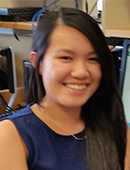
Emily Kuang
Training Period in Lab: Summer 2015
Undergraduate, New York City College of Technology
Project: Assessing the Dimensionality of MCF7 Cells Response to Perturbations

Azu Lee, MS
Training Period in Lab: Summer 2015
Undergraduate, University of Washington
Project: Interactive Mobile App Game for Deconvolution of Gene Set Modules from Gene Set Enrichment Analyses

Aditi Dandapani, PhD
Training Period in Lab: 2009-2010
Project: Dynamical Model of Viral DI Particles

Michael Komosinski, BS
Training Period in Lab: Summer 2011
Undergraduate, Colgate University
Project: Integrating, Predicting, and Visualizing Mammalian Protein-Protein Interaction Networks

John Zhuang, BS
Training Period in Lab: 2010
Undergraduate, Columbia University
Project: Regulatory Network Created from Loss of Function and Gain of Function Studies of Mouse Embryonic Stem Cells

Mariola Szenk, PhD
Training Period in Lab: 2009
Undergraduate, Hunter College
Project: PathwayGenerator2: Automated Visualization of Signaling Pathways using Flash and ActionScript 3
Visiting High School Students

Inko Bovenzi
Training Period in Lab: Summer 2019
Hunter College High School
Project: Crossing Gene Sets Across Libraries to Discover Novel Pathways

Derek Wang
Training Period in Lab: Summer 2018
East Brunswick High School
Project: GTEx2BioJupies: Jupyter Notebook Analysis Reports from Interactive Selection of GTEx Portal Samples
Current Position: Undergraduate, Carnegie Mellon University

Jennifer Lin
Training Period in Lab: Summer 2016
Oceanside High School
Project: Predicting Potential Drugs for Diabetic Nephropathy using L1000 Data

Mounica Kamesam
Training Period in Lab: Summer 2014 and 2015
Yorktown High School
Project: Automated Data Integration and Data Mining to Improve Breast Cancer Classification

Axel Feldmann
Training Period in Lab: Summer 2014 and 2016
Hunter College High School
Project: Hepatocellular Carcinoma Patient Classification with Enrichment Vectors
Current Position: PhD Student, Massachusetts Institute of Technology

Jayanath Krishnan
Training Period in Lab: Summer 2010
Mahopac High School
Project: Regulatory Signatures of Cancer Cell Lines Inferred from Expression Data
Visiting Medical Students

Andrew Warburton
Training Period in Lab: Summer 2019
Project: D2S2 – Collections of Disease and Drug Centric Gene Sets

Alexander Barash, MD
Training Period in Lab: 2007-2008
Research Focus: Systems Pharmacology

Ryan Logan Webb, MD
Training Period in Lab: 2007-2008
Research Focus: Software Tools for Systems Biology

